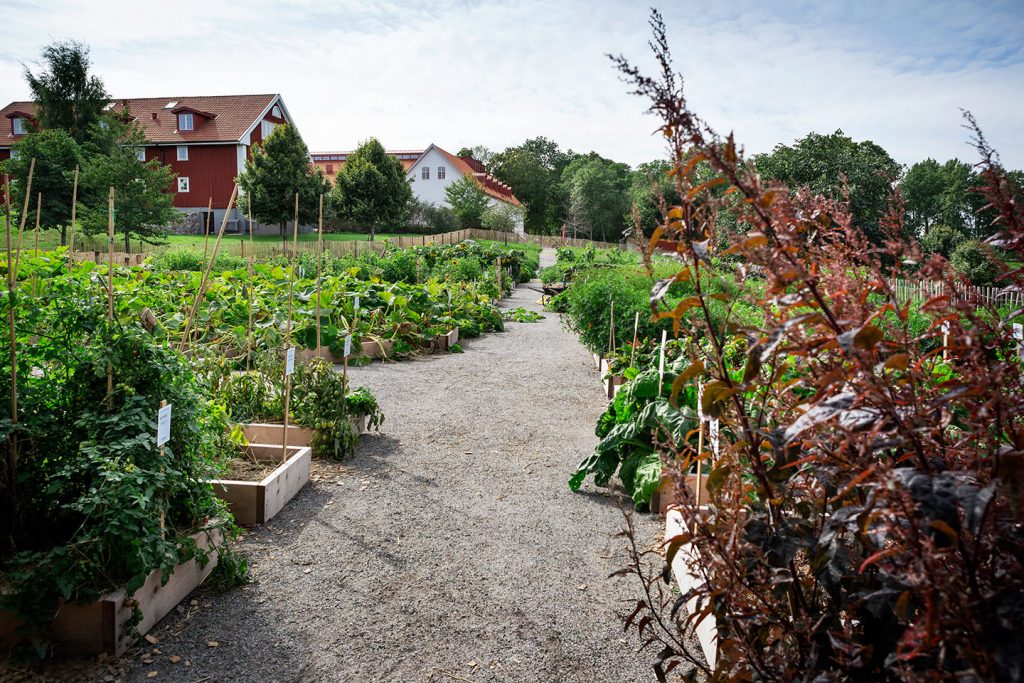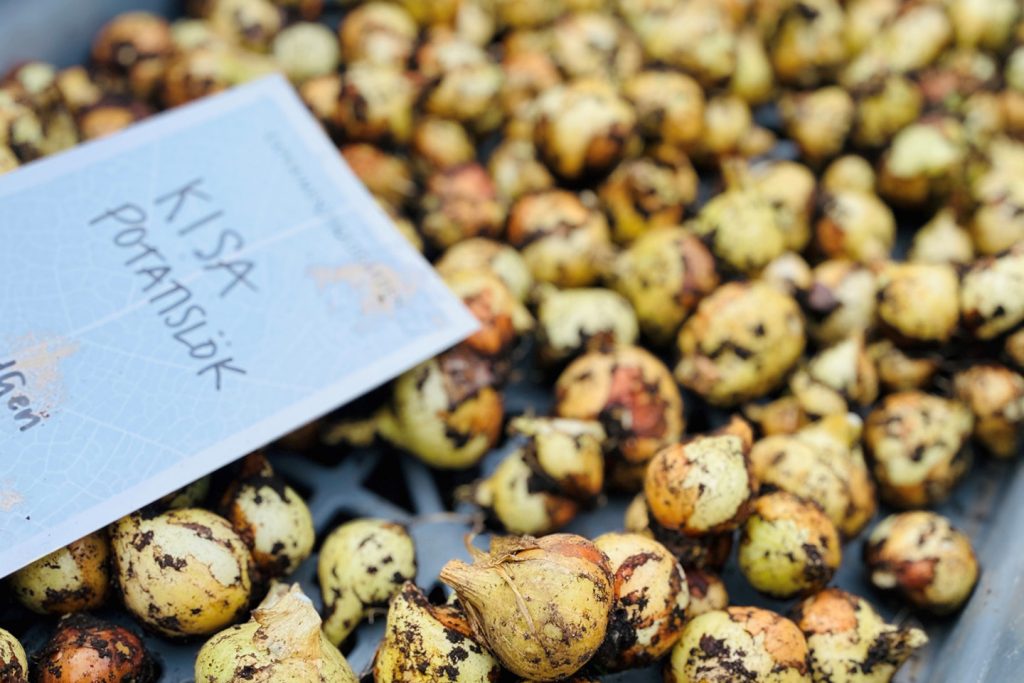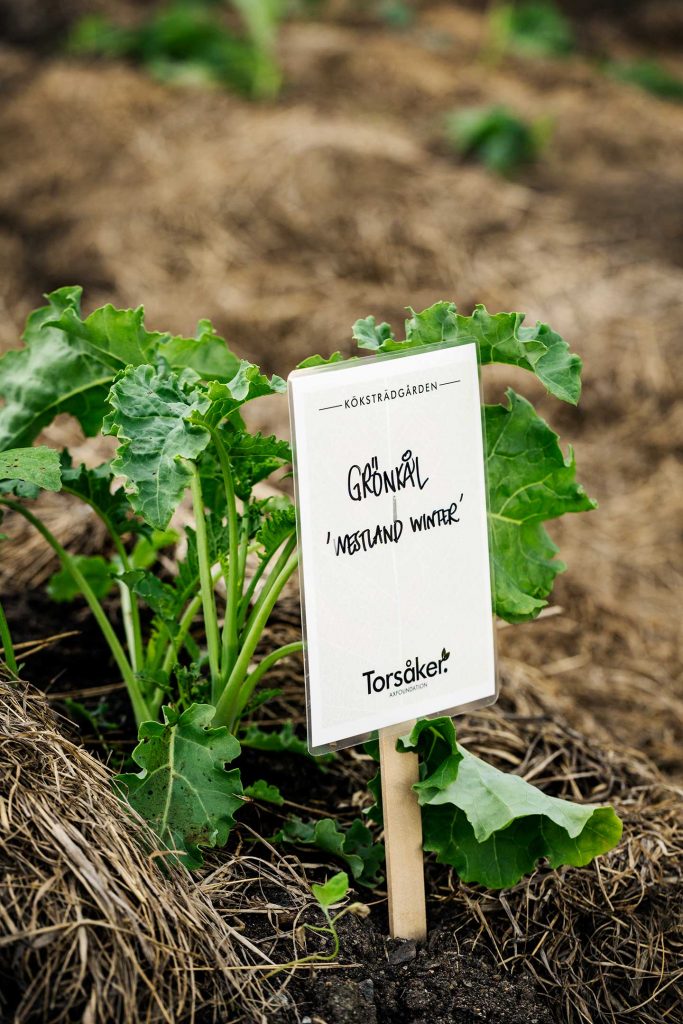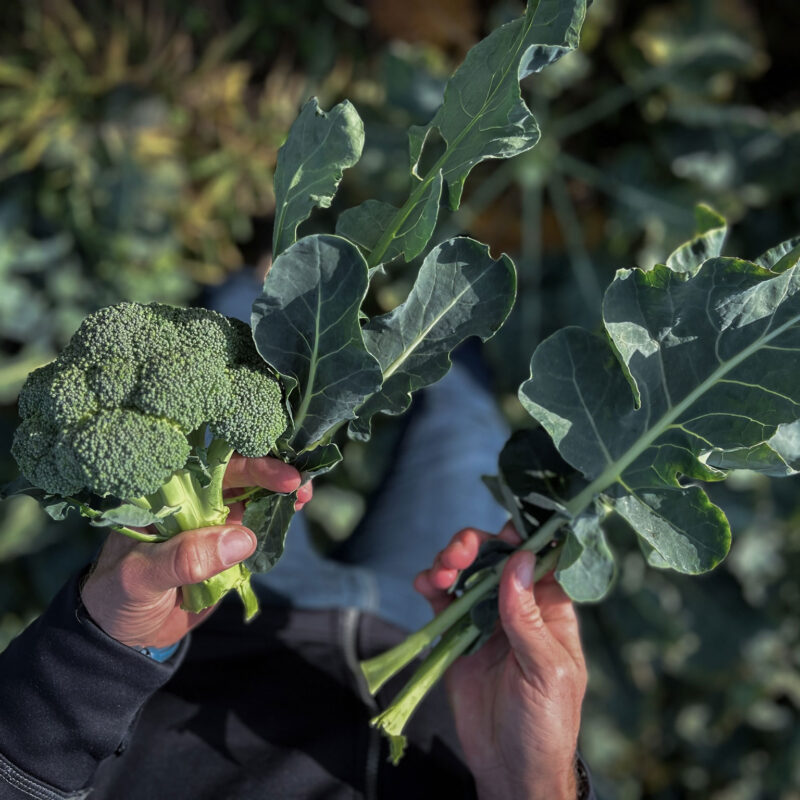The Experimental Garden
Axfoundation operates an experimental garden at Torsåker farm. The garden is an important piece of the puzzle in the business at Torsåker where we experiment with different kind of sustainable fertilizers, test different growing methods and try new and old vegetable varieties - varieties that used to be grown in Sweden but which has basically disappeared.

We eat more vegetables in Sweden – but our domestic production does not increase at the same rate.
The Issue
The vegetable consumption in Sweden has more than doubled during the last decades while our domestic production hasn’t substantially increased. Instead the doubling is covered by imports. The advantages with Swedish vegetables are shorter transportation and the high nutritional value thanks to the many hours of sun during the growing season. High labor costs and Sweden’s short growing season leads to Swedish farmers having a hard time competing with cheap imports.

The tasty onion "Kisa" is one of many vegetables grown in the Experimental garden at Torsåker Farm
The Solution
We believe that taste, nutritional content and sustainability must be part of all food system development. Most plants today are refined primarily considering yield and pest resistance, not the aspect of taste. The need for imported fruit and vegetables decreases, if more vegetables with higher nutritional value are grown in Sweden. Vegetable farming can also be an effective way of utilizing organic waste streams through innovative fertilizer solutions.
Our Work
Axfoundation operates an experimental garden at Torsåker farm where we evaluate different kinds of farming techniques for new as well as for forgotten crops and several methods for nutrition recovery, for example through insect fertilizers.
Axfoundation tests gastronomically and nutritionally interesting vegetables using economically and environmentally sustainable farming techniques and then share the results. We collaborate with Nordgen – Nordiskt Genresurscenter – which provides us with seeds from crops that used to be grown in Sweden and therefore are adapted to our latitudes. We have for example tested old Swedish potato and bean varieties. We evaluate the produce after they are harvested based on taste and yield, and gather seeds to increase the production.
During the 2018 growing season we tested the growth of vegetables in fertilizer produced by insects, a widening of the project 5 tonnes of green fish in the counter. Thus we have created a full circle; food waste becomes feed for insects that become feed for farmed fish which become food on our plates, with a by-product in the shape of waste from insects which gives nourishment to garden crops that also end up on our plates.
Axfoundation tested a fertilizer developed by Solserv during the 2019 growing season. Solserv’s compost converts organic waste to fertilizer in 24 hours with the help of microorganisms. The results of the 2020 cultivation were largely used for product development tests. In 2021 -2022 the cultivations expanded and were integrated even more clearly into Torsåker’s operations.

Axfoundation operates an experimental garden at Torsåker farm where we evaluate different kinds of farming techniques and crops.




































